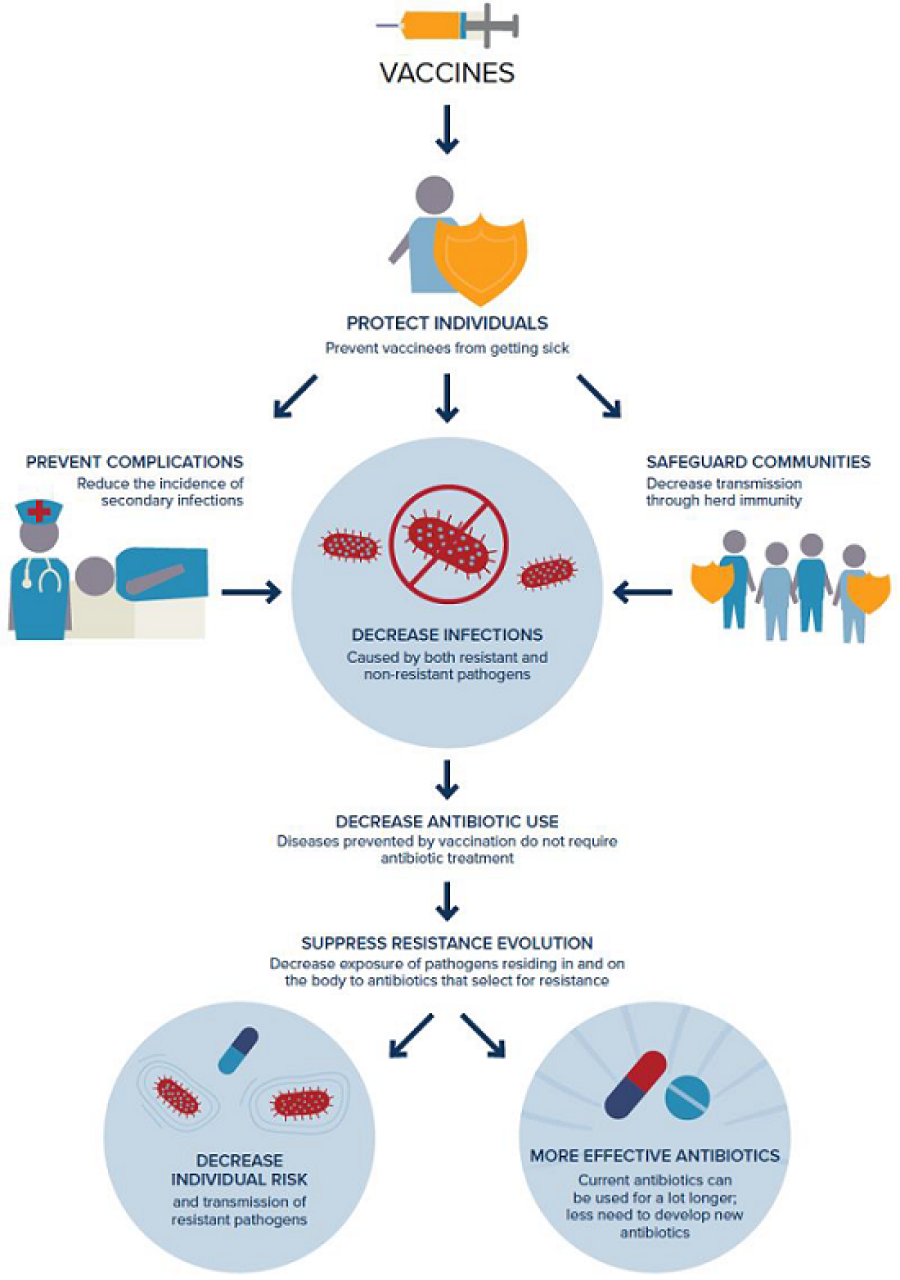
Vaccines are a crucial pilar of public health and their value in both preventing the individual disease cases, and society wide disease outbreaks are well explored and known. However, the impact of vaccines on AMR and associated reduction in mortality, morbidity and associated economic impact is less well known. Based on a search of PubMed articles, this topic has gained prominence in 2018 with steady increase in publications on the topic since then. For this reason, the publication of WHO report “Estimating the impact of vaccines in reducing antimicrobial resistance and antibiotic use that quantifies the impact of vaccines on reducing the AMR burden of pathogens” is very timely.
The report looks at 24 bacterial and viral pathogens. The modelling is focused on three cases. First is reduction in AMR associated human and economic costs due to currently available vaccines at the current vaccine coverage rates. Second is the extra benefit if the current vaccines were given to a broader group of people and at WHO’s target vaccination rates based on WHO’s Immunisation Agenda 2030. Third, the report offers assessment of the potential future vaccines for pathogens such as TB and Klebsiella pneumoniae.
The great benefit of this report is the clarity and the detail of the result which gives the funders, public health officials and researchers a guide to maximising the impact of their efforts. The results are broken down by WHO regions which both acknowledges the regional differences and helps prioritise the effort to best match local priorities.
One aspect of the report that can be improved, is the lack of non-AMR linked impact. Thus, while report highlights that vaccines can help prevent 1.7mln death and 65mln disability adjusted life years per annum due to AMR, the true impact of vaccines is even greater when non-AMR infections are included.
It’s great to see a detailed study that brings together knowledge on the subject into an actionable report. The report gives yet another reason to devote more resources to vaccines development and roll-out and helps health authorities make case that vaccination pays for itself.
References:
https://www.who.int/publications/i/item/9789240098787
https://www.who.int/teams/immunization-vaccines-and-biologicals/strategies/ia2030
If you enjoyed this article and would like to build a career in global health, we offer a range of MSc programmes covering health and data, infectious and tropical diseases, population health, and public health and policy.
Available on campus or online, including flexible study that works around your work and home life, be part of a global community at the UK's no.1 public health university.
